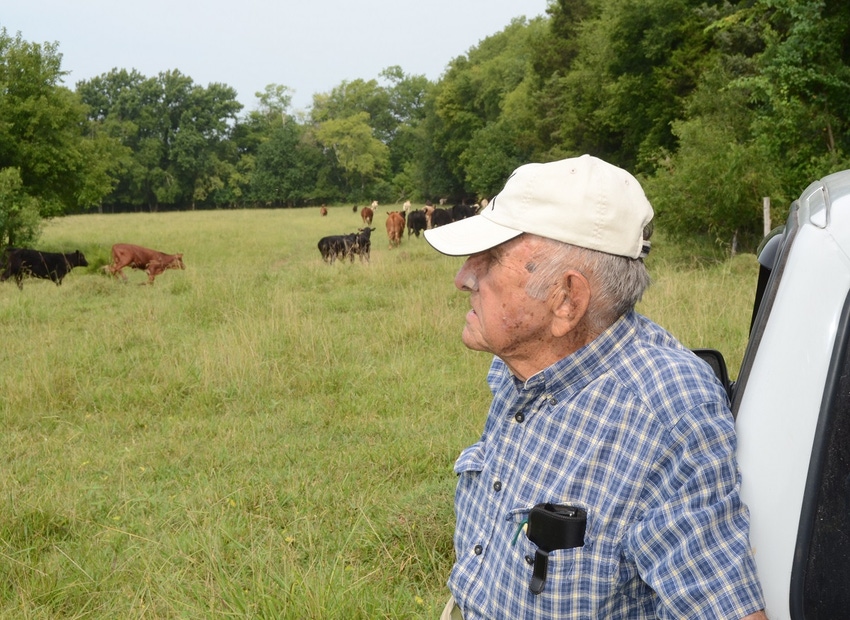
The late Gordon Hazard was highly successful and quite well known and respected for many years before he and I met in West Point, Mississippi, back in December of 1996 for breakfast. I paid and it was a good investment.
Over the next 20 years I likely made 20 trips to the great prairie of Mississippi to visit Hazard, observe and learn what was going on and learn a little. I do not think I ever failed to come home with new ideas and knowledge.
It was always amazing how many people knew Hazard and how many knew something about him.
When I made my first trip to Osage County in Oklahoma in 2006 for the Father's Day weekend Cattlemen's Ranch Convention, I was looking for a place to sit and eat my beef brisket when a rancher named Charley Chambers invited me to have a seat at his table. Charley A. and his father (Charley L.) couldn't have been nicer. As soon as they found that I was from Tennessee, they wanted to know if I knew Gordon Hazard. After all, we were only 300 miles apart.
Recently I was following my own advice and rereading Doc Hazard's book Thoughts and Advice From an Old Cattleman on an annual basis (maybe the 15th time). He makes several really good points.
Hazard's Chapter 4 on the processing and conditioning of sale barn cattle is worth the price of the book times 10, even if you are in the cow/calf business and never buy in new cattle. For the rest of us it is worth a lot more.
Hazard gave some healthy advice that includes these important things, plus a lot of other good advice:
Limiting stress on newly weaned and/or purchased calves.
Feeding newly weaned or purchased calves.
Detecting and pulling sick cattle (read and reread).
Keeping numbers in perspective.
When to stop buying.
Seasonal health expectations.
Animal identification.
Water and feed considerations.
Non-use of urea (non-protein nitrogen).
Conditioning, vaccine use and what not to perform.
Hospital and recovery pens.
Mixing sale barn and home-raised cattle.
One of the things that really stuck with me was Hazard wrote to never mix home-raised calves with sale-barn calves. He sure was dead-on with that statement. Home-raised calves need to be weaned and out on pasture before any sale barn purchases are begun. The home-raised calves should have received all of the vaccines that the sale barn cattle will be given. Do not mix them for at least 30 days. Six weeks is better.
The same is not true of short- and long-yearling cattle that have the right temperament. I have seen Hazard take an easy-going, hard yearling or two and put them in with new, bawling calves to quickly train the children to feed, water, hay and grass. It also gives the babies some near-adult supervision and maybe a little security blanket. I've done the same with success.
When it comes to the cattle business Hazard was always more than reasonably intelligent.
To get copies of the late Gordon Hazard's book, call his son, Mark, at (662) 494-8040.
About the Author(s)
You May Also Like






